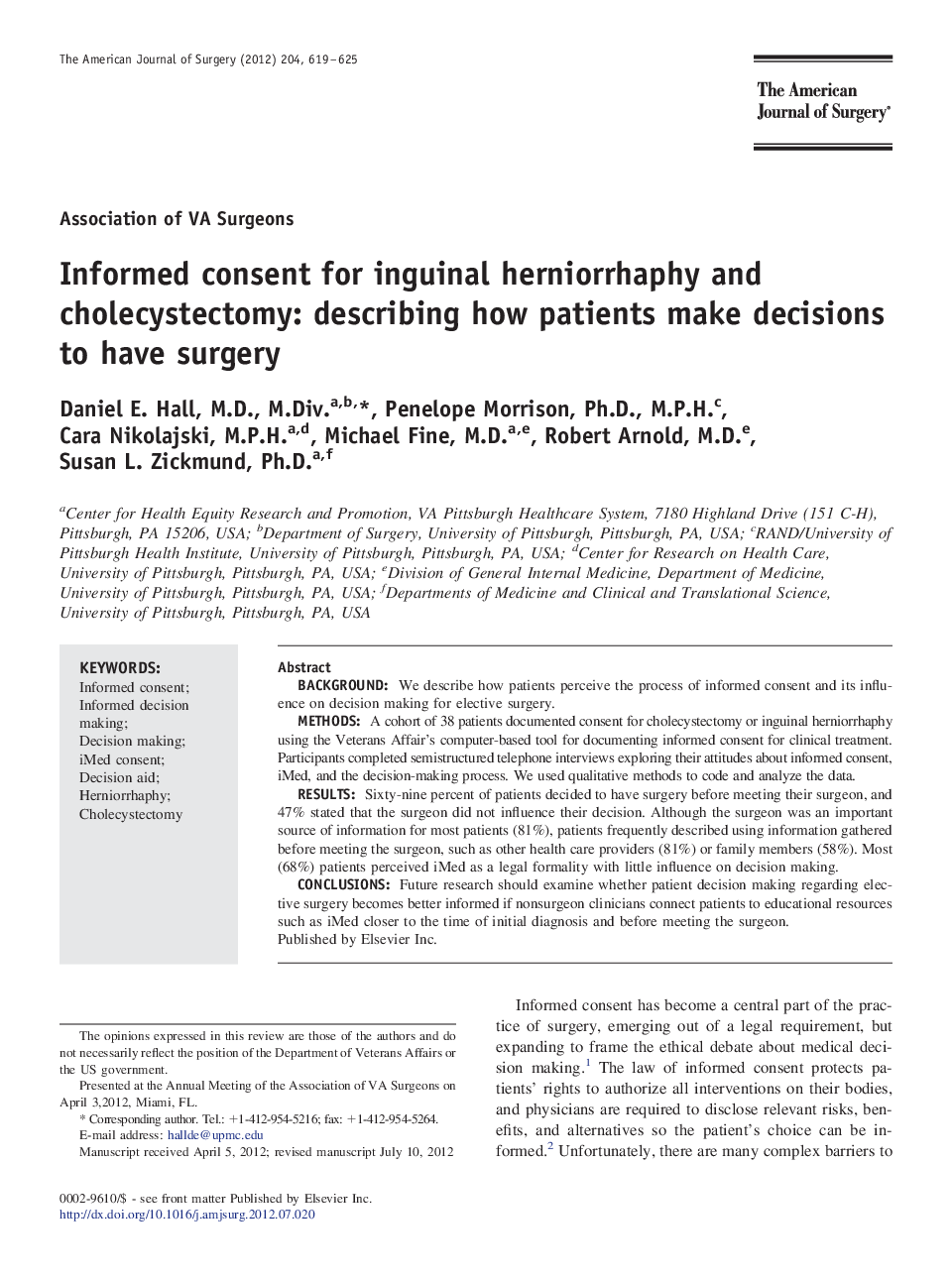| Article ID | Journal | Published Year | Pages | File Type |
|---|---|---|---|---|
| 4279671 | The American Journal of Surgery | 2012 | 7 Pages |
BackgroundWe describe how patients perceive the process of informed consent and its influence on decision making for elective surgery.MethodsA cohort of 38 patients documented consent for cholecystectomy or inguinal herniorrhaphy using the Veterans Affair's computer-based tool for documenting informed consent for clinical treatment. Participants completed semistructured telephone interviews exploring their attitudes about informed consent, iMed, and the decision-making process. We used qualitative methods to code and analyze the data.ResultsSixty-nine percent of patients decided to have surgery before meeting their surgeon, and 47% stated that the surgeon did not influence their decision. Although the surgeon was an important source of information for most patients (81%), patients frequently described using information gathered before meeting the surgeon, such as other health care providers (81%) or family members (58%). Most (68%) patients perceived iMed as a legal formality with little influence on decision making.ConclusionsFuture research should examine whether patient decision making regarding elective surgery becomes better informed if nonsurgeon clinicians connect patients to educational resources such as iMed closer to the time of initial diagnosis and before meeting the surgeon.
